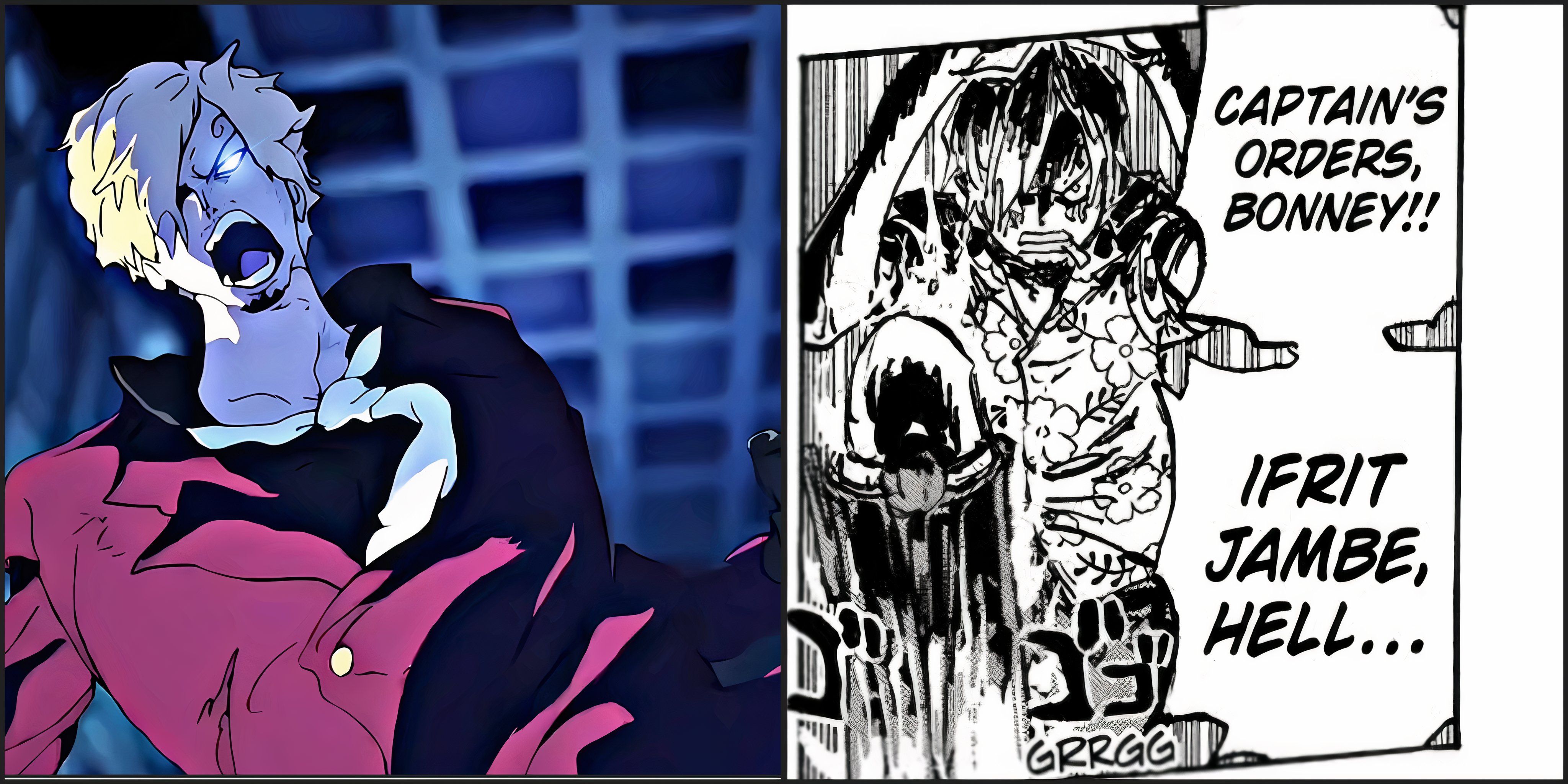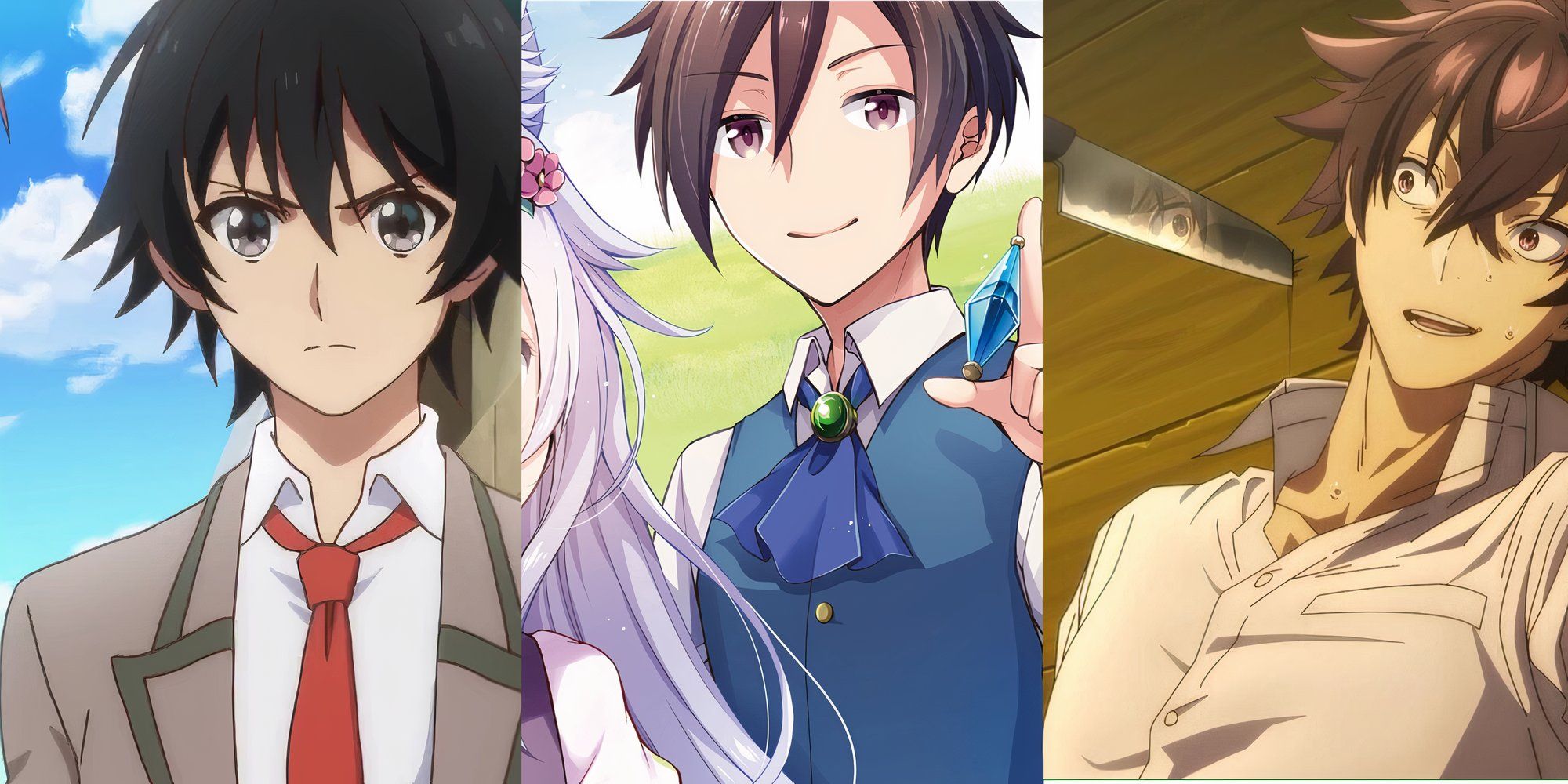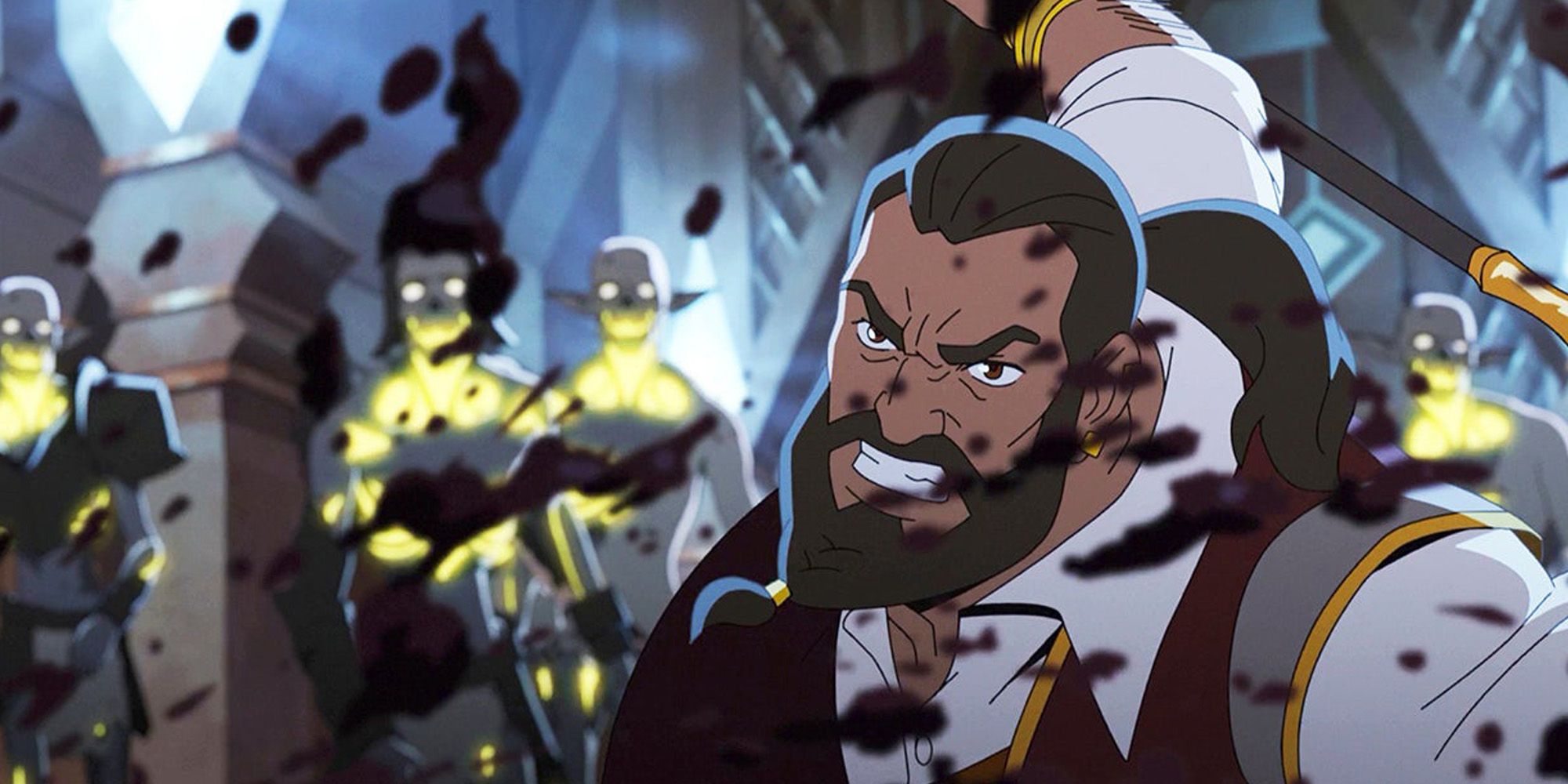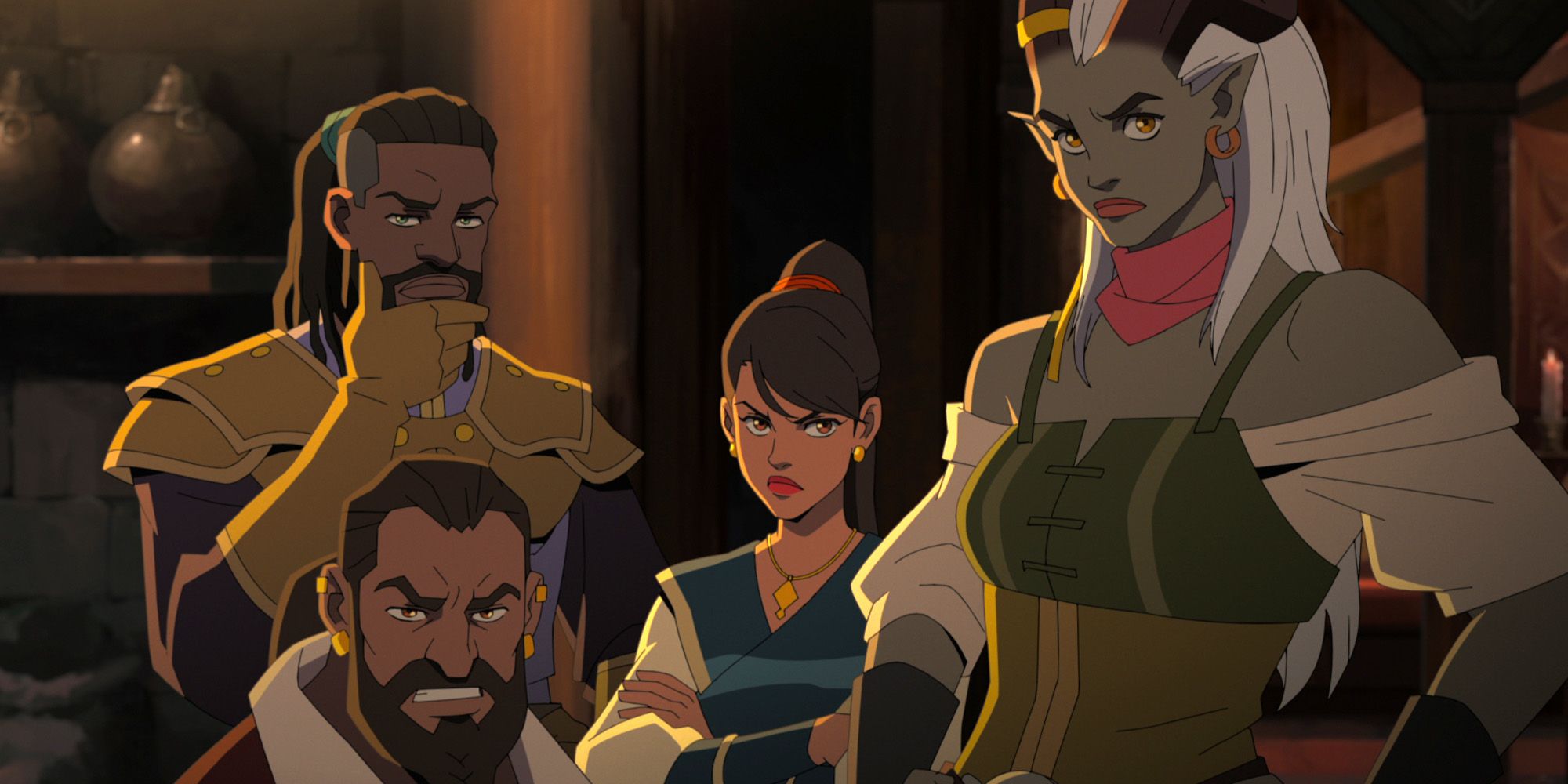Netflix's Castlevania series changed the way people envisioned that video games could be adapted to television and film, and more studios are turning high fantasy franchises into animated epics. Dragon Age may have been a dormant series for quite some time, but its new original animated series, Dragon Age: Absolution, is quite an explosive reintroduction to the world of Thedas.
Fans have been craving more from Dragon Age since the favorable reception to Dragon Age: Inquisition in 2014, which saw the titular inquisition form to close the rifts between their world and that of demons and spirits. Absolution takes place after the events of Inquisition and follows a group of adventurers who plan to pull off a heist to steal the Circulum Infinitus.
No Time To Think
Following in the tradition of many streaming releases in the past few years, Absolution is only six episodes, long, a number that might immediately raise warning flags for some. It feels like the number of episodes is more of a contractual obligation or a rigid template rather than a well-considered time frame to tell a story.
It is undoubtedly Absolution's greatest flaw, in fact, that it is so short, and it isn't even as though the story changes the world of Dragon Age too greatly. It has implications for the lore going forward, but it more or less focuses on its characters in an isolated - though certainly chaotic - incident in the Tevinter Imperium.
It's not unthinkable for a newcomer unfamiliar with Dragon Age to have a great time with this series. The story isn't as unwieldy as DOTA: Dragon's Blood might have been to those unfamiliar with its lore. Absolution is easily understood because the world elements most imperative to the story are explored through the characters. The only problem is that things move way too quickly.
By the beginning of Episode 3, it feels like four episodes should have passed instead of just two. The beginning of the heist that sets the plot in motion feels incredibly rushed as if the writers were wary of falling into the typical traps of a heist setup. And as trope-laden as such a heist framing device can be, it is essential for learning about the characters and the locale.
The story abandons all of that and sees the heist begin by the end of the very first episode before the audience has really gotten a chance to learn about all the characters. It seems entirely counter-intuitive to a heist story, but after the show brute-force introduces its cast, it becomes clear that the heist isn't really the important part.
It's In The Name
Absolution could not be a more apt description of this show's narrative themes. This isn't a heist show; it's a tale of bloody absolution and self-acceptance that uses a heist as a launchpad for something much more entertaining. At the center of the story is Miriam, an Elf and former slave of the Tevinter estate that houses the Circulum (the target of the heist).
When Hira, Miriam's former girlfriend, comes to her asking for her help to steal the Circulum, she couldn't be less enthusiastic about risking her life for it. However, she comes around, seeing an opportunity to confront her past, and joins Hira and a team of adventurers led by Fairbanks, a minor character from Inquisition.
But things go terribly wrong during the heist and suddenly Miriam finds herself confronting Rezaren, the son of her old master. Rezaren, upon introduction, seems likable enough. He is a mage who wants to harness dark power to try and help people. But as his story and the heist crew collide, the audience learns the darker truth behind their shared past.
What's so impressive about the story is how it explores Miriam's trauma, the prejudice against her, and her rage in such a cathartic way. What happened to her was awful, and her resulting trauma looms over her, preventing her from sticking her neck out for others like her. But when her anger outshines her fear, she lets loose in a brutal fashion, lashing out at the embodiment of power structures that have robbed her and so many like her of innocence.
Without trying to spoil too much, Rezaren is a very effective foil to Miriam exactly because of how likable he is at first thanks to Josh Keaton's phenomenal performance. This spoiled kid who never truly understood what Miriam went through is trying to "fix" the problems that separated them because he can't understand that his happy memories weren't so happy for her.
His performance is this perfect mix of kindhearted intention and sinister gaslighting that truly makes the final episodes that much more satisfying when the characters clash. Honestly, despite the rushed introduction, all the characters are performed phenomenally thanks to vocal director Mary Elizabeth McGlynn (The Major in Ghost in the Shell, Julia in Cowboy Bebop).
Good Characters, Better Action
The performances and character moments are so good that it almost makes up for how incredibly rushed the opening act is. Characters like Qwydion, voiced by Ashley Birch, are so darn fun that it's a shame she almost feels like an afterthought in the main plot. Phil LaMarr and Keston John play Roland and Lacklon respectively and they fair considerably better.
The two have such fantastic and hilarious chemistry, leading to the show's most prominent romantic arc, which feels even more heartwarming as it's between two male characters. LGBTQ+ representation is only getting more prominent and different viewers will representation of different degrees that make them think "finally!" but this one, in particular, hit a sweet spot for the author of this article.
Speaking personally, it was very cool to see such a tasteful male-to-male romance in this particular genre. Across the board, this show has great queer characters that are simply allowed to exist without judgment and be fun characters. Sub-genres of action have had queer characters, but it's nice to see more gay men being represented.
Absolution was produced by Red Dog Culture House, a South Korean animation studio that has worked alongside Studio Mir on projects like Voltron: Legendary Defender and The Witcher: Nightmare of the Wolf. Frankly, their work on Absolution even exceeds some of the brilliance seen in 2021's Nightmare of the Wolf.
South Korean animation has often been characterized not only by its unique color design but by the direction of its action, notably in how the "camera" moves during fight scenes. The shaky cam effect can a more dynamic look to what might otherwise look simple or perhaps stilted, but it's only a fraction of the techniques seen in this series.
Around Episode 4, the animation and fight choreography reach thrilling new heights and don't relent until the end. It's a blessing that the magic animation, from the manipulation of blood to the particles of light, looks mostly hand-drawn. It's an altogether fantastic-looking show that draws from a lot of influences.
Dragon Age: Absolution could have been longer and many might find its plot far too rushed to connect fully with the cast. However, past its brute-force exposition, one might find quite a passionately constructed emotional climax. It's one more sign of how adult animated shows are growing in prominence, and one can only hope that there are better things on the horizon.
Dragon Age: Absolution is currently streaming on Netflix.
Dragon Age: Absolution




